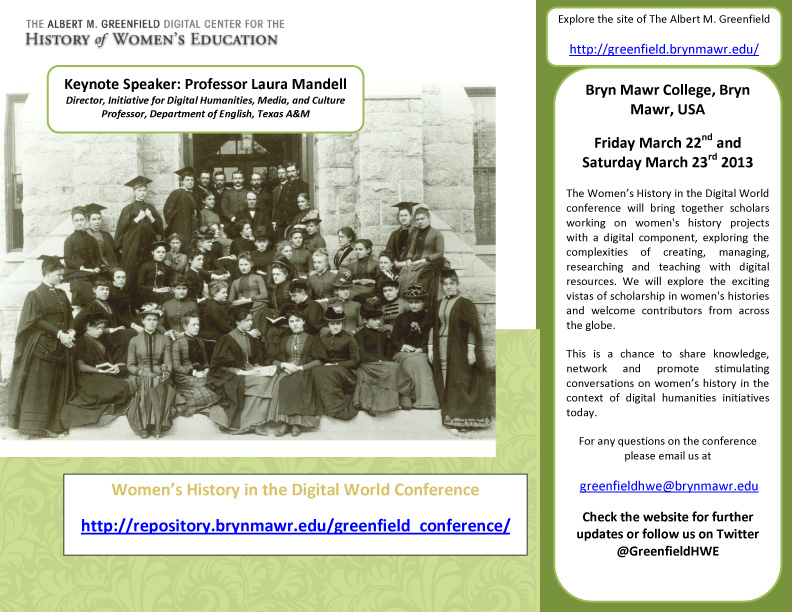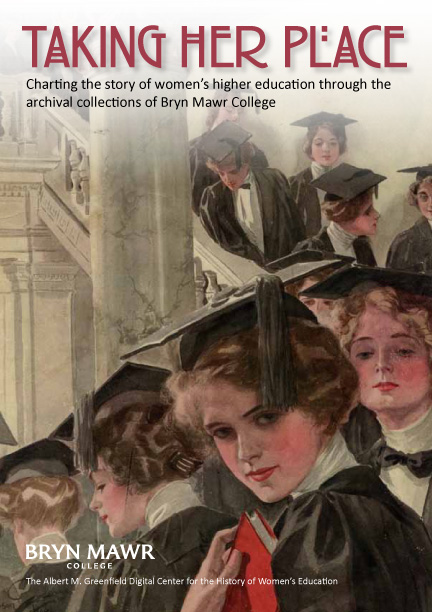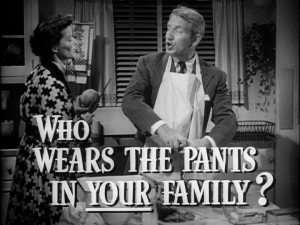![]() Worldwide members of the Association of Personal Historians (APH) will gather inside theCapital Beltway for their 19th annual conference in Bethesda, Maryland, November 8–12, 2013, for Capital Reflections. APH Conference Program Chair Ronda Barrett is planning a stimulating and educational program for experienced and beginning personal historians. The APH annual conference is a magnet for members wanting to explore ways to enhance their businesses of documenting personal and family histories.
Worldwide members of the Association of Personal Historians (APH) will gather inside theCapital Beltway for their 19th annual conference in Bethesda, Maryland, November 8–12, 2013, for Capital Reflections. APH Conference Program Chair Ronda Barrett is planning a stimulating and educational program for experienced and beginning personal historians. The APH annual conference is a magnet for members wanting to explore ways to enhance their businesses of documenting personal and family histories.
Author Archives: Jennifer Redmond
Women’s History in the Digital World – March 22nd to 23rd 2013
 It’s almost time for the inaugural conference of The Albert M. Greenfield Digital Center for the History of Women’s Education!
It’s almost time for the inaugural conference of The Albert M. Greenfield Digital Center for the History of Women’s Education!
Women’s History in the Digital World offers a packed schedule of digital humanities projects that focus on women’s history. Participants are coming from across the US and the world to showcase their work, share information on tools, research, funding and practices, and most of all, meet each other in an environment wholly dedicated to women’s history issues in the digital era. Members of The Albert M. Greenfield Digital Center for the History of Women’s Education and its Advisory Board members will be in attendance to inform you about our work and our future plans.
Our keynote speaker, Laura Mandell is Director of the Initiative for Digital Humanities, Media, and Culture and Professor of English at Texas A&M University. She is the author of Misogynous Economies: The Business of Literature in Eighteenth-Century Britain (1999), a Longman Cultural Edition of The Castle of Otranto and Man of Feeling, and numerous articles primarily about eighteenth-century women writers, and Breaking the Book (forthcoming). She is Editor of the Poetess Archive, on online scholarly edition and database of women poets, 1750-1900, Director of 18thConnect, and Director of ARC, the Advanced Research Consortium overseeing NINES, 18thConnect, and MESA. Professor Mandell will speak on ‘Feminist Critique vs. Feminist Production in Digital Humanities’.
Registration is open and you must register online if you are planning to attend the conference by going to the registration page of the official conference website. It’s not too late to register! Registration fee is just $30 and this gives you access to the full conference, including the keynote and reception on Friday, all panels, coffee breaks and lunch on Saturday and a special closing reception at the gallery in Canaday Library to see Taking Her Place,  a show curated by The Albert M. Greenfield Digital Center for the History of Women’s Education. This will give conference attendees a final chance to engage with each other, view the collections of Bryn Mawr College, and wind down after a productive and fruitful gathering.
a show curated by The Albert M. Greenfield Digital Center for the History of Women’s Education. This will give conference attendees a final chance to engage with each other, view the collections of Bryn Mawr College, and wind down after a productive and fruitful gathering.
Don’t forget that, as advertised on the official conference website, we are also offering a free tour of campus at 3.30pm on Friday March 22nd before the conference begins. If you would like to attend the tour, please email greenfieldhwe@brynmwar.edu with ‘RSVP Tour’ in the subject line of the email.
Presenters at the conference are offered the ability to upload their presentations and related material to our institutional digital repository so they can be shared afterwards.
Our official conference hashtag is #WHDigWrld so if you’re coming to the conference don’t forget to promoted and follow the conversation using it, and as always, don’t forget to follow us on Twitter @GreenfieldHWE
For any queries about the conference, including registration, please email greenfieldhwe@brynmawr.edu. For specific queries about the work of the Center, please email the Director, Jennifer Redmond, at jredmond@brynmawr.edu
Come join us – we look forward to seeing you!
Happy International Women’s Day!
 Happy International Women’s Day!
Happy International Women’s Day!
We hope whatever you are doing you are doing something to celebrate women.
As part of the celebrations we created a Tumblr from images of suffrage activism from 1913 from the Carrie Chapman Catt Albums, part of the Carrie Chapman Catt Papers at Bryn Mawr College. Click here to view it and make sure to follow us!
We’ve been forwarding info on Twitter all day about events, blogs, conferences and interesting archival pickings that we’ve heard about so make sure to follow us @GreenfieldHWE and @RedmondJennifer to keep up with the celebrations.
2013 Educating Harlem Lecture Series
 2013 Educating Harlem Lecture Series
2013 Educating Harlem Lecture Series
Our 2013 lecture series provokes us to rethink the stories we tell about learning, schooling, and community, and to reimagine the place of history and humanistic inquiry in education today. We have invited scholars who have defined their scholarship, and their lives as scholars, in ways that challenge conventional boundaries between historical research, writing, teaching, and engagement with public life. Our speakers offer stories of the place of learning and schooling in communities that focus on Harlem and extend beyond its borders. Join us for the beginning of an ongoing conversation.
Wednesday, March 6, 4-6pm
306 Russell Hall, Teachers College, Lecture followed by reception
Barbara Ransby, Professor, Gender and Women’s Studies, African American Studies & History, University of Illinois at Chicago
Ella Baker: Radical Educator With Harlem Roots – Ella Baker received her own political education on the streets of Harlem but she also became a teacher there. Working in a New Deal Program called the Worker’s Education Project, she trained adult students in what can only be called a version of Freire’s pedagogy for liberation. There, in classrooms in the Harlem Y and Harlem Public Library, Ella Baker sharpened her own ideas and her approach to popular education. She would pass those lessons on to the young people in the Student Non Violent Coordinating Committee three decades later. Prof. Ransby will talk about Ella Baker’s own intellectual development on the streets of Harlem, the cast of characters who were her informal teachers, and how she herself became a Black Freedom Movement teacher.
Please join us! RSVP to histanded@tc.columbia.edu. RSVP requested, but not required.
Mark your calendar for upcoming events:
Wednesday, March 27, 4-6pm
Martha Biondi, Director of Graduate Studies and Associate Professor of African American Studies and History, Northwestern University
Wednesday, April 24, 4-6pm
Khalil Muhammad, Director of the Schomburg Center for Research in Black Culture,The New York Public Library
Thursday, October 10, 4-6pm
Charles M. Payne, the Frank P. Hixon Distinguished Service Professor in the School of Social Service Administration, University of Chicago
This series is made possible through support from the Provost’s Investment Fund and is organized with the cooperation of the Teachers College Department of Arts and Humanities – Program in History and Education, Institute for Urban and Minority Education, and Center on History and Education.
Archival Summer School for Young Historians 2013
Archival Summer School for Young Historians 2013
American History in Transatlantic Perspective
Supported by the Robert Bosch Stiftung
September 1 – 13, 2013
Archival Seminar in Chicago, IL; Madison, WI; Boston, MA; Washington, DC
Convener: German Historical Institute, Washington DC; University of Chicago’s Department of History; Robert Bosch Stiftung
Call for Applications
With the generous support of the Robert Bosch Stiftung, the German Historical Institute, together with the University of Chicago’s Department of History, offers an archival program for doctoral students from Germany and the United States.
The summer school prepares Ph.D. students working in the field of American history for their prospective research trips. Participants learn how to contact archives, use finding aids, identify important reference tools, and become acquainted with miscellaneous American research facilities, among them the Wisconsin State Historical Society, the John F. Kennedy Presidential Library, and the Library of Congress. They gain insight into how historical materials are acquired, preserved, and made accessible to historians. In addition, they have the opportunity to meet a number of prominent scholars and discuss their research with them.
We hope that participants will gain an appreciation for the various kinds of archives and special collections located in the United States, either for future reference or for their general training as scholars of American history, culture, and society. Students are also welcome to extend their stay in the United States to do their own exploration and research after the program ends.
We welcome individual applications but also encourage potential participants to apply together with a transatlantic partner. Participants are expected to form small working groups and initiate cooperation with a partner PhD-student in their respective fields. Applicants should note, however, that they will have limited opportunity to do their own work during the course.
Applicants must be registered as Ph.D. students or enrolled in a Ph.D. program at a German or US institution of higher education. The program seeks qualified applicants interested in historical studies in a broad range of fields (art history, economic history, history of consumption, social history, cultural studies, diplomatic history, etc.), and whose projects require consulting sources located in US archives.
Preference will be given to those who have already chosen a dissertation topic and written a dissertation proposal. Prospective candidates must have excellent knowledge of written and spoken English. All parts of the program will be conducted in English.
The stipends cover expenses for travel and accommodation and include a daily allowance.
A complete application consists of:
a cover letter outlining the candidate’s motivation to participate;
a curriculum vitae;
a dissertation proposal (4-8 pages);
a letter from the candidate’s doctoral advisor.
Applicants are encouraged to submit their materials via e-mail. Advisors’ letters can be sent directly, by post, or by email to:
Bosch Archival Summer School for Young Historians
German Historical Institute
1607 New Hampshire Ave, NW
Washington, DC 20009-2562
USA
Deadline for submission is April 15, 2013. All applicants will be notified by May 15, 2013.
<http://www.ghi-dc.org/index.php?option=com_content&view=article&id=1358&Itemid=1172>
For more information, please contact:
Dr. Mischa Honeck
German Historical Institute (GHI), 1607 New Hampshire Ave NW
Washington DC 20009-2562
Phone: +1 (202) 387-3355
Fax: +1 (202) 483-3430
Transformations: How has the Bryn Mawr College experience made me the person I am today? by Karen M. Mason, Class of ‘75
Kicking off our Women’s History Month Celebrations we have the entry from our alumnae winner of our annual essay competition. Kären M. Mason, ‘75 answered the essay’s prompt: Transformations: How has the Bryn Mawr College experience made me the person I am today?
Kären is Curator of the Iowa Women’s Archives, University of Iowa Libraries, a position she has held since the archives’ founding in 1992. She earned degrees in history from Bryn Mawr College, the University of Minnesota, and the University of Michigan, where her dissertation focused on US women’s history. Kären will be presenting at the Women’s History in the Digital World Conference here at Bryn Mawr College on March 23rd, make sure to register by visiting the conference website if you are interested in seeing Kären’s talk.
Read her winning response to our essay competition question now….
In the fall of 1970 I was a senior at a suburban Minneapolis high school, pondering my future. I clearly remember a phone conversation between my parents, myself, and my brother John, who was then a junior at Haverford College. My father asked John “Do you think Kären should apply to Bryn Mawr?” John hesitated before replying, “I guess so.” That ringing endorsement was good enough for my father, who encouraged me to add Bryn Mawr to the Midwestern liberal arts colleges on my list. I did apply to Bryn Mawr, but that spring I sent my $100 deposit to Carleton College in Northfield, Minnesota, fully intending to matriculate there. No doubt it was my father who urged me to visit Bryn Mawr after learning I’d been accepted there.
When my mother and I arrived at Bryn Mawr on a sunny spring day, the campus was in bloom. The sunlight and flowering trees showed off the gothic architecture in the best possible light. We were smitten. I recall no campus tour, only a meeting with admissions director Elizabeth Vermey, who was warm and kind and made me feel very welcome. I must have visited a dorm, though, because the appeal of a suite or single room over the one-room triple I’d been shown at Carleton made an impression. But to be honest, it was a dinner at the Haverford dining hall with my brother and his handsome and charming friends that sealed the deal. To summarize: blossoms, admissions officer, single room, Haverford. So, like many high school seniors, my decision was based on a gut feeling, not on a rational weighing of pros and cons or academic programs. I opted for Bryn Mawr despite its being a women’s college, not because it was a women’s college. I would not have gone to Bryn Mawr if not for the robust bi-college community.
That said, I loved college. I made good friends and socialized and had excellent professors. I lived in a palatial suite in Denbigh my freshman year with my first single bedroom ever and a lovely view of New Gulph Road and the outside world. There were teas given by upperclassmen and serendipitous gatherings in the “smoker” (an unfortunate term for the lounge in a building with a 90-second fire life, but perhaps not as anachronistic as calling the lovely woman who watched over us a “warden”). Some of my favorite memories are trips to Zonkers for music, incense, and other necessities for a seventies dorm room; the Paoli local; the walk to Haverford, especially the last part through the woods; the College Inn; occasional meals at Hot Shoppes and Roy Rogers; Frisbee and flag football on the Merion green; and seeing Bonnie Raitt, Arlo Guthrie, and Taj Mahal at the Main Point, and the Grateful Dead and Traffic at the Spectrum. Some of my least favorite memories are Hell Week and the dogfish I dissected for weeks upon end until all that remained was the smell of formaldehyde. Academically, I especially liked the anthropology courses I took, and felt a real sense of accomplishment when I completed my six-week paper on “Fate in the Novels of Thomas Hardy” for Freshman English.
But Bryn Mawr College was a culture shock. I referred to myself as “the Minnesota quota.” Although I had been at the top of my class at an excellent public high school, I felt totally unprepared for the rigors of Bryn Mawr academics. Comparing myself to the prep school graduates in my French class who had spent vacations abroad and were already fluent, I soon jettisoned my plan to be a French major. I floundered until taking a US history course with Roger Lane at Haverford my sophomore year, the semester I had to declare a major. When Professor Lane passed out the budget of an immigrant family to give us a window into turn-of-the-century working class life, I discovered that history was not just about war, politics, and great white men, but about all people. I took history courses on both campuses, and benefitted from the breadth of options thus provided. Majoring in history changed my life and set me on a path that ultimately led to my becoming an archivist.
Nonetheless, by my junior year I had become ambivalent about Bryn Mawr, a feeling that never left me. I later framed my college years as a time when I explored the East Coast, visiting my brother Chris at Johns Hopkins and spending holidays in New York City, Boston, and elsewhere with Bryn Mawr friends, but deciding I was a Midwesterner at heart. I often said that Bryn Mawr had taught me how to write but that Haverford did a better job of teaching students how to think critically. I received an excellent education and I know that my Bryn Mawr degree opened doors for me.
So why the ambivalence? In part, it was that seventies “question authority” attitude toward institutions of any kind. And partly it was my Midwestern anti-elitist bent. But recently when preparing to be interviewed for a University of Iowa television program, I spent some time reflecting on my experience at Bryn Mawr. More and more I realized how important the college’s feminist underpinnings had been to me. I didn’t realize the extent to which Bryn Mawr had inculcated feminist values in its students as we learned about M. Carey Thomas and the history of the college. We scoffed at the oft-repeated phrase “our failures only marry.” And we snickered at the Maypole tradition and the Paoli local mnemonic “old maids never wed and have babies.” What not-so-subtle and oh-so-contradictory messages were we receiving? And yet feminism was a given at Bryn Mawr. My friend Marianne, who was a year ahead of me, loaned me Betty Friedan’s The Feminine Mystique and Robin Morgan’s Sisterhood is Powerful to read over the summer after freshman year. And that is when the pieces fell into place. I began calling myself a feminist after reading those books, but my freshman year at Bryn Mawr had prepared the way and the remaining years cemented my feminism. Bryn Mawr brought me into contact with smart, feminist women—students and professors and guest lecturers—and nurtured my feminism in ways I didn’t recognize at the time or for many years later.
I stumbled into the archival profession, as most archivists do. Straight out of college, there were no jobs in museums, the career I had imagined for myself as a history major. After a stint doing secretarial work, I was interviewed for a job as an editor for the path breaking Women’s History Sources Survey at the University of Minnesota in the late 1970s. I am sure I landed the interview because I was a Bryn Mawr graduate, since I had absolutely no experience or qualifications to be an editor. But that interview led to a volunteer position, and soon thereafter a paid position, working on the survey. It was through this job that I discovered an affinity for archives and women’s history. I went on to earn a PhD in history, writing my dissertation on an extraordinary group of women in Progressive-Era Chicago and cutting my teeth as an archivist at the University of Michigan.
In 1992 I was hired by the University of Iowa as the first curator of the newly-established Iowa Women’s Archives. For the past twenty years I have nurtured the archives, building the collections, teaching students about the treasures therein, assisting scholars, mentoring future archivists. It is a rewarding job. In this position I meet women of diverse backgrounds and experiences from all walks of life and persuade them to donate their personal papers—letters, photographs, diaries, scrapbooks—to the Iowa Women’s Archives. In so doing, I am saying to each woman that her life has been important, that others can learn from her experiences, that history is about everyone, not just the rich and powerful, and not just about men. As I ask women about their lives, I find that the backstory is often just as significant as the activities by which they define themselves to the larger world. I try to draw out these backstories and ascertain what documents might illuminate them. The results are gratifying: rich collections for the archives, and for the women who contribute their papers, a sense that their lives have mattered.
Reflecting on my own life in the way that I ask donors to reflect on their lives, I see that I have a backstory, too, and that Bryn Mawr College is a large part of that backstory. It’s not just a line on my resumé. What I learned at Bryn Mawr—outside as well as inside the classroom—is deeply embedded in me. The job I have today weaves together my feminism, my love of history, and my curiosity about the human experience, passions that arose from my experiences and studies at Bryn Mawr. A feminist grounding, together with a superior education and rigorous academic requirements, provided me with the foundation that helped me succeed in a wonderful career that I never imagined while at Bryn Mawr.
For editorial policies on guest blogs please see http://greenfield.blogs.brynmawr.edu/sample-page/
Call for contributions: Women, Work, and the Web: How the Web Creates Entrepreneurial Opportunities
Women, Work, and the Web: How the Web Creates Entrepreneurial Opportunities
Book Publisher: Scarecrow Press
Editor: Carol Smallwood, Women on Poetry: Writing, Revising,
Publishing and Teaching (McFarland, 2012) on Poets & Writers Magazine
“List of Best Books for Writers.” Writing After Retirement: Tips by Successful Retired Writers forthcoming from Scarecrow Press.
Seeking chapters of unpublished work from writers in the United
States and Canada for an anthology. We are interested in such topics
as: Women Founding Companies Existing Only on the Web; Women Working
on the Web With Young Children or Physical Disabilities; Woman’s
Studies Resources and Curriculum Development Webmasters; Women as
Founding Editors of Webzines and Blogs; Surveys/Interviews of Women
on the Web.
Chapters of 3,000-4,000 words or two chapters coming to that word
count (up to 3 co-authors) on how the Internet has opened doors,
leveled the playing field and provided new opportunities for women,
are all welcome. Practical, how-to-do-it, anecdotal and innovative
writing based on experience. We are interested in communicating how
women make money on the Web, further their careers and the status of
women. One complimentary copy per chapter, discount on additional
orders.
Please e-mail two chapter topics each described in two sentences by
March 28, 2013, along with a brief bio to smallwood@tm.net Please
place INTERNET/Last Name on the subject line; if co-authored, paste
bio sketches for each author.
http://adannajournal.blogspot.com/p/retirement-call-for-submissions.html
Writing After Retirement: Tips by Successful Retired Writers
Book Publisher: Scarecrow Press
Co-editor: Carol Smallwood co-edited Women on Poetry: Writing,
Revising, Publishing and Teaching (McFarland, 2012), on Poets &
Writers Magazine’s “List of Best Books for Writers”; edited Pre- &
Post-Retirement Tips for Librarians (American Library Association,
2012).
Co-editor: Dr. Christine Redman-Waldeyer, Assistant Professor,
Coordinator of the Journalism Option Program, Passaic County
Community College, Paterson, New Jersey; Editor/Founder, Adanna
Literary Journal; Author, Eve Asks (Muse-Pie Press, 2011).
An anthology of unpublished 3,000-4,000 word chapters or two chapters
coming to that word count by successful, retired writers from the
U.S. and Canada (up to 3 co-authors) previously following other
careers than writing. Looking for topics as: Business Aspects of
Writing, Writing as a New Career, Networking, Using Life Experience,
Finding Your Niche, Privacy and Legal Issues, Using Technology. With
living longer, early retirement, popularity of memoir writing, this
is a how-to for baby boomers who now have time to write.
Compensation: one complimentary copy per chapter, discount on
additional copies.
Please e-mail two chapter topics each described in two sentences by
March 28, 2013 with brief pasted bio to smallwood@tm.net placing
RETIREMENT/Last Name on the subject line. If co-authored, pasted bios
for each.
Women’s History Month Celebrations at The Albert M. Greenfield Digital Center for the History of Women’s Education
 The Albert M. Greenfield Digital Center for the History of Women’s Education is delighted to announce its program of events to celebrate Women’s History Month!
The Albert M. Greenfield Digital Center for the History of Women’s Education is delighted to announce its program of events to celebrate Women’s History Month!
We will kick off the celebrations by publishing the two winning essays of the recent essay competition sponsored by The Friends of the Bryn Mawr College Library. The two winners – one alum, one current student – responded to the competition’s theme, “Transformations: How has the Bryn Mawr College experience made you the person you are today?” In different but equally thoughtful essays, current student Emily Adams (class of 2014) and alum Kären Mason (class of 1975) reflected on the ways in which their time at the college challenged them, shaped them and led them to questions, opportunities and unique experiences. Kären Mason’s essay will be published on the site on Friday March 1st with Emily’s Adam’s contribution being published in the third the week of March so keep an eye on the site for updates.
The celebrations continue with a weekly blog post dedicated to a brand new acquisition, The Woman’s Column, a pro-suffrage newsletter that recorded events from around the world. Our collection spans from 1892-1903 and features fascinating articles from some of the best known political and social campaigners of the time. Read the extracts for insights into what women thought about the issues of their day, what organizations they were involved in, and what public rhetoric they had to argue against in their quest to allow women throughout the world the right to vote.
On Thursday March 21st we will have a film screening in conjunction with the Bryn Mawr College campus chapter of the global initiative She’s The First and Half the Sky who are working to raise money for girls across the world accessing education for the first time. We will be showing one of Katharine Hepburn’s best known films, Adam’s Rib, in Thomas 110 at 6pm. Don’t miss your chance to see this iconic film! For further info on the film click here
Refreshments will be served and She’s the First will be selling cupcakes for $2. The money raised will go toward a scholarship for Namtasha, a junior involved in AfricAid’s The Kisa Project so please come hungry and support this fantastic cause. .
Follow the She’s the First campaign on Twitter @STF_BrynMawr and follow Half the Sky @half
These are important causes to ensure that women’s education keeps progressing throughout the world and the legacy of those who fought for women’s access to education in the past continues into the future.
We are also having our first conference, Women’s History in the Digital World, on Friday March 22nd and Saturday March 23rd. For access to the conference schedule, please visit the official conference website.
 The conference brings together scholars, archivists, technologists, librarians, graduate students and those involved in the arts, heritage and cultural sectors to discuss their work on women’s history in the new realm of the digital world of research and teaching. Our keynote speaker, Professor Laura Mandell is Director of the Initiative for Digital Humanities, Media, and Culture and Professor of English at Texas A&M University. She will speak on ‘Feminist Critique vs. Feminist Production in Digital Humanities’ at 5.30pm in Wyndham Alumnae House. This event is free and open to the community and will be followed by a reception, also at Wyndham. We have free student places available for the entire conference and are asking all students to RSVP in advance to secure their place by emailing greenfieldhwe@brynmawr.edu with your name and student ID number.
The conference brings together scholars, archivists, technologists, librarians, graduate students and those involved in the arts, heritage and cultural sectors to discuss their work on women’s history in the new realm of the digital world of research and teaching. Our keynote speaker, Professor Laura Mandell is Director of the Initiative for Digital Humanities, Media, and Culture and Professor of English at Texas A&M University. She will speak on ‘Feminist Critique vs. Feminist Production in Digital Humanities’ at 5.30pm in Wyndham Alumnae House. This event is free and open to the community and will be followed by a reception, also at Wyndham. We have free student places available for the entire conference and are asking all students to RSVP in advance to secure their place by emailing greenfieldhwe@brynmawr.edu with your name and student ID number.
Are you arranging any Women’s History Month events? Be sure to let us know, we’d be happy to help you promote them (email greenfieldhwe@brynmawr.edu)
We will be tweeting regularly so don’t forget to follow us @GreenfieldHWE
Call for Papers: The ERA in the 21st Century
 Call for Papers (due May 1, 2013)
Call for Papers (due May 1, 2013)
Roger Williams University, Bristol, RI
November 15-16, 2013
The Equal Rights Amendment, originally introduced to Congress by Alice
Paul in 1923, has long served as a symbol of inequality for women in our
national heritage. The amendment is simple, and states:
Section 1. Equality of rights under the law shall not be denied or
abridged by the United States or by any state on account of sex.
Section 2. The Congress shall have the power to enforce, by appropriate
legislation, the provisions of this article.
Section 3. This amendment shall take effect two years after the date of
ratification.
This conference invites proposals for conference papers that examine
issues of equality in the United States of America, using the ERA as a
conduit through which to open dialogues across academic, legal, and public
spheres.
To submit your conference paper proposal, please e-mail a 250-500 word
abstract and a CV or brief bio to
eraconference2013@gmail.com<
proposals are due by MAY 1, 2013.For questions about the conference, please contact
eraconference2013@gmail.com<mailto:eraconference2013@gmail.com>
ERA Conference 2013
Department of History and American Studies
Roger Williams University
One Old Ferry Road
Bristol, RI 02809
(401) 254-3171
Registration Continues for the Women’s History in the Digital World Conference
 Registration continues for the Women’s History in the Digital World Conference, March 22nd -23rd 2013.
Registration continues for the Women’s History in the Digital World Conference, March 22nd -23rd 2013.
The conference brings together scholars, archivists, technologists, librarians, graduate students and those involved in the arts, heritage and cultural sectors to discuss their work on women’s history in the new realm of the digital world of research and teaching. Our keynote speaker on March 22rd, Professor Laura Mandell is Director of the Initiative for Digital Humanities, Media, and Culture and Professor of English at Texas A&M University. She will speak on ‘Feminist Critique vs. Feminist Production in Digital Humanities’ at 5.30pm in Wyndham and will be followed by a reception, also at Wyndham. Consecutive panels and a roundtable, featuring over 50 speakers, will happen on Saturday March 23rd.
We have developed a separate conference website where you can find directions to the campus, the registration form and the full conference schedule. This site also acts as a repository for conference related materials after the event, so if you can’t make it be sure to check back for copies of the presentations you missed. Registration is completed online, with the $30 registration fee to be forwarded separately via check.
For access to the official conference website go to http://repository.brynmawr.edu/greenfield_conference/
Please email greenfieldhwe@brynmawr.edu if you have any questions.
We look forward to seeing you!





